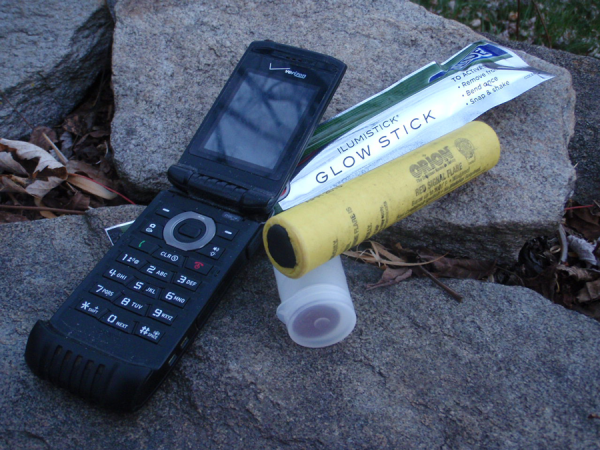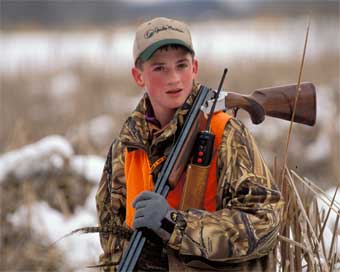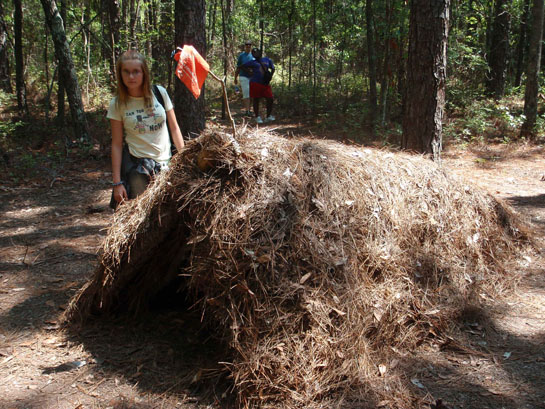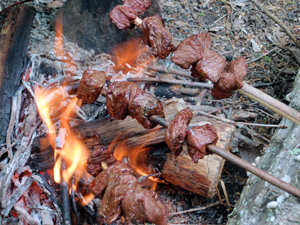As the mournful cry of coyotes filled the canyon, my buddy Steve and I stopped to listen. Scanning the ridge above us, we were able to zero in on the pack. It was amazing how far the coyotes’ song carried and how it instantly caught our attention. But that’s nature’s way–animals use sound to communicate. The system has worked since the world began.
In the backcountry, audible signals can work to our benefit, too. An odd sound, obviously out of place in nature, will attract attention. And in a survival situation, attracting the attention of other people is exactly what you want to do.
Unlike visual signals, which can be seen by observers from miles away [see Survival, September], audible signals are effective over a much shorter range. But if you’re down and disabled in dense cover, an audible signal might be the thing that saves you when visual signals would be impossible for a searcher to see. Use both, but don’t discount the value of noise, especially when you have cause to believe that other people are in the vicinity.
One of the best audible signaling devices is a cellular phone or a two-way radio. My buddy Steve and I got into a mess in the mountains one afternoon while tracking a cougar, and I ended up in a pile of broken bones (hey, it happens). Fortunately, Steve had his radio with him. While he helped me hike to the nearest driveable forest road, his wife was on her way in the truck to pick us up. I ended up in the emergency room, but that was better than lying injured in the brush in big-cat country.
USE YOUR VEHICLE
Of course, if cell-phone service or radios are simply not operating in your part of the backcountry, you’ll need to use other types of audible signals. We’re talking noisemakers here, and the type you use will depend on what you have at hand. If you’re in or near your vehicle (even if it has run off a cliff into a gorge and you’re trapped inside), use the horn. Make three short blasts, then wait a few minutes, then follow with three more short blasts. Sounds grouped in sets of three, whether it’s gunshots or blasts on a horn, are a universal distress signal.
A dead vehicle can offer other audible signals than just the horn. Open the hood and use a heavy stick to pound it like a gong. It won’t be musically pleasing, but it will make a noise that will sound out of place to anyone within earshot.
Primitive drums have been used for centuries as communication devices because their sound carries a long distance and is an attention-getter. If you can locate a hollow log and a stout stick, do your best woodpecker imitation. Again, follow the routine of three beats–silence–then three more beats.
PUMP UP THE VOLUME
Gunshots in sets of three are effective, but entail one problem: You are using up valuable ammunition. If you know there are other people in the area, and you want to alert them that you’re in trouble, a trio of gunshots will be effective. But to shoot off all your ammo simply because you’re desperate to attract help is not a good idea. Save some ammo for food gathering. Don’t use it for signaling until there are indications that there are other people in the area.
Of course you should always carry a survival whistle. The shrill note of a whistle will carry a long distance. There are several good survival whistles on the market. You want one that is compact, lightweight, durable and able to function when wet. I use a Jet Scream from Survival Incorporated (www.ultimatesurvival.com), but another good one is the Storm Safety Whistle from West Marine (www.westmarine.com).
BRING IN THE NOISE
Become a general nuisance to the peace and quiet of the wilderness. Bang your metal plate with a spoon, clatter noisy gear together, thump your walking stick on trees or sing a lively song–be the kind of guy you would leave at home if you were going hunting.
In short, do everything you can to make noise, but don’t shout for help. Hearing the sound of your own desperate and frightened voice screaming for help will only plunge you into a psychological mess. If you’re in a group, shouting for help can unhinge your partners, too. Maintain a strong and purposeful approach to signaling, so you can think clearly, save energy and carry on effectively.
What Would You Do?
You and your hunting partner separate and hunt up different canyons for the day. That evening, you return to camp but your partner never shows up. Darkness envelops the mountains. You hear the echo of three shots, far away. What should you do?
A. Stoke up the campfire so your buddy can see his way to camp, then just sit tight and wait.
B. Go in search of your lost buddy.
C. Take the truck to the nearest town and call search-and-rescue.
D. Start shouting, so your buddy can find his way back to camp. (For answer, see page 107).
Quick Tip
HANG YOUR DISHES A perpetual noisemaker can be made by hanging your metal dishes, cups, etc., at the end of a line tied to a limb, where they will blow about in the breeze, bang against each other and make a racket.







